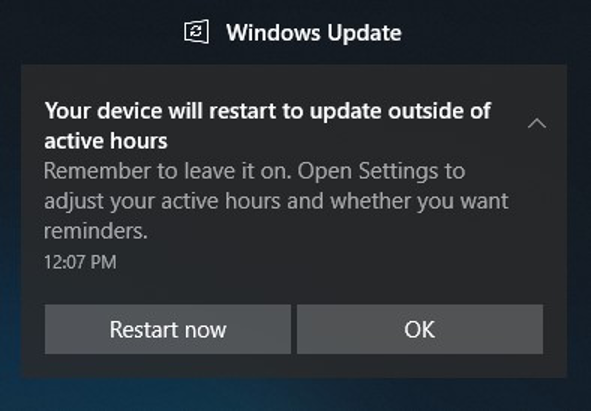Today marks an exciting new chapter as we continue the quest. While I've shared many inspiring Ikigai stories with you, it's time to open the stage to our readers and occasionally feature their unique journeys.
For the first time, I've invited a guest author to share their personal Ikigai story.
Her life is a testament to the power of Ikigai. It is the first of many new ways we will explore living out your purpose, including upcoming interviews and videos.
Raksha Daryanani is a writer I’ve gotten to know over the past several years. She has been named one of the Top Storytelling Voices on LinkedIn.
She's also one of my personal favorites, not only because she loves Turkish coffee and lovingly raves about her grandparents. 😉
Technically skilled writers are a dime a dozen. Skilled writers who also write from the heart, now that's a rare combination. Raksha has it and more. Also, she is one of the most genuine people you'd hope to meet.
Her bio alone is a fascinating read. Being born in India, raised in South America, studying in England, and now calling Barcelona home for the past six years.
Raksha enjoys sharing essays, articles, and stories that encourage reflection, personal growth, cultural awareness, and an appreciation for life.
She has communicated with me how I’ve encouraged her to uncover her Ikigai, and I invited her to share that story with you.
Enjoy!
A lot of us - dare I say the majority - expect a smooth life.
I know I did. I wanted a life where relationships are easy, technology works without glitches, and ideally, our careers keep going upwards from the very beginning.
Wishful thinking?
Perhaps not. Let me explain.
Firstly, I believe we forget that for anything to run smoothly, it needs to be taken care of, invested in and nurtured. This goes for our health, technology, careers, and even relationships.
I’ll admit, though: I used to find it annoying when my computer prompted me for automatic updates every few weeks. I was working in a regular HR job from autumn 2010 onwards.
I’d click those “restart now” or “ok” buttons nevertheless, and get on with my tasks of dealing with employee matters, recruitment quotas and contract management. After the system updates were installed, I’d breathe a sigh of relief.
Never did this notification for a system update strike me as something special. I mean, systems do that. It’s implicit.
But why should I update my life, even if I may be bored with what I do? I was in my comfy yet not-so-fun HR job - a field I'd chosen with great determination and confidence at the age of 19.
Updates were for systems, thank you very much.
The System Updates that I was Ignoring
Something changed after 5 years of working in HR, however.
I started noticing how I’d enjoy writing internal communications (also part of my job), versus dealing with employee matters.
Ideas on policies and creative ways to communicate them would flow to me in my sleep, and I would use my free time to read books, and HR articles on Forbes, HR Bartender, and Harvard Business Review. I wished I could write them instead of having to terminate employees and recruit more people each time the business strategy changed.
I didn’t do anything with my ideas, sadly, even though I saw signs everywhere: the CEO of my then workplace would request my help in drafting communication regularly.
Additionally, I’d get vivid dreams of standing on stage and performing poems and stories, and having a book published.
Oh, and a request from Linkedin had landed in my inbox around that time too. They’d just opened up opportunities for people to write on their platform, and wanted me to write as well. “Do it. Try it. What have you got to lose?” said the voice inside my head.
What did I have to say? Who would care, anyway? Those thoughts kept me stationary.
Alarm Bells: The Cost of Ignoring System Updates
After 8 years of working in HR, I pushed those signs aside and decided to pursue a master’s degree in England. I’d chosen the MA in HR & Consulting programme based on my work experience, and as a continuation of my bachelor’s degree in HR.
You see, for some reason, I thought careers were meant to be a measure of our progress in one particular field. You studied one thing and worked in that field for years to become a specialist. At least, that’s what had been modelled to me.
The MA programme gave me more than just HR knowledge and interaction with international peers. Firstly, the academic and literary environment in England inspired me to read more, and attend various talks at the university regularly.
I observed and was drawn to how researchers would speak at events, formulate and present their ideas, and receive feedback.
I enjoyed the process of writing papers for our assignments more than learning about HR theories. I had fun when conducting qualitative research, and started seeing interviews as ways to get my hands on detailed information for articles.
I thought it was all in my head, this paradigm shift from wanting to work with people to writing stories and articles. That’s when the system alerts - as I like to call the signs from the subconscious mind - became louder and evident to people around me as well.
Classmates would come to me for help with their essays, and when I partook in an open mic storytelling night held by a Phd student, the crowd wanted more than the first chapter I’d read out loud.
Next, a U3 representative who’d attended asked me to read that first chapter to her class in London. Off I went, feeling strangely at peace in my new world.
What’s more, two of my professors complimented me on different occasions. “Did you know you write very well? We enjoy reading your essays because they have a logical flow and you bring across your points clearly. Have you considered a career as an academic?” they asked.
There was a certain image my mind was forming of being able to articulate one’s thoughts on paper and in person. The vivid dreams of performing on stage and telling stories in writing got regular, and opportunities started to flow my way.
How had I missed out on this all these years? It reminded me of the famous quote: “When the student is ready, the master appears.”
When Doubts Kicked In Like They Tend To Do
The alerts were blaring their alarms, and I paid heed by brainstorming options. Should I do a Phd to get more opportunities, like my professors had recommended? The thought was entertaining.
Yet, once I graduated, I didn’t want to specialise in HR anymore. I wanted to carry on with writing and was wondering how to take a full plunge.
It made sense. Unlike working in HR, I felt alive when writing. It gave me energy and I lost myself in that world for hours at a time.
I also knew my words had the power to move, convince and empower people. I had seen that energy in motion at the open mic night and during group presentations at university, and craved more of it. I had always devoured stories, and storytelling came naturally to me.
Questions such as “Where was the old Raksha who could talk to clients and employees for hours? Why were the writing desk, chair, and blank pages more appealing all of a sudden?” still boggled me.
“What about the degree I had come to England for? What would I say after graduating? That I went abroad for a degree in HR but came back as a writer?” I was in agony, so I set the decision to pivot careers aside for a while.
Surrendering to My Ikigai: Accepting My System Updates
After little more than a year - when I had gotten married and moved to Spain - I put the puzzle together. My subconscious mind (my system) had been giving me hints and nudges all the way. It had been updating itself in the background, highlighting my strengths and their impact!
This wasn’t a shock, rather the system’s way of showing me that storytelling through writing was my purpose, my Ikigai. It had been knocking on my doors while I was focused on other stuff.
The system updates had peeked through as impulses before and during my master’s course, telling me what to pursue and how to feel joyful again in my work. The encouragement from professors and classmates was an extra notification.
How had I not seen this before? Was being happy at work possible? Was a career okay to change midway, even after investing in it heavily? Yes, it definitely seemed so!
Mastering words for bringing positive change felt like magic, and I started investing in this newly-discovered power.
I took writing courses and masterclasses, actively studied articles in famous magazines and newspapers, and joined freelance writing communities. I also read every day to expand my vocabulary, and meditated on what I’d wanted to achieve. I visualised my future, found people who’d pivoted before, and learnt from them.
Making My Ikigai Known to Others Through a Personal Brand
In February 2020, I took the leap and started writing on LinkedIn. I shared snippets of my HR experiences at first, slowly shifting into real-life stories with a lesson attached to them. The public (and I) fell in love with the latter, so I stuck to writing them.
I was still secretly applying to HR jobs, though. Somehow, I felt I needed something to hold on to. I had interviews lined up in the first week of March 2020. When they got canceled due to the pandemic’s onset, I put my hands up and surrendered.
I learned content writing that same year, and was offered freelance writing opportunities 6 months later.
Bit by bit, I built my personal brand. I showed the readers what I cared about, how I wrote, and which articles had made the most impact.
The mini-essays I shared to demonstrate my skills had paid off. Clients from all over the world requested me to write for them, and the rest is history.
Adjust Your Sails and Be Prepared for a Reboot
As I look back now, I can see how the seas of life changed for me.
Which brings me to my second point: the concept of a smooth life is not impossible, if only we adjust our sails.
A good sailor knows that a ship is not a determining factor for having a safe journey. The sailor’s skills are. By adjusting the sails, the sailor is able to cross the oceans safely. This was the lesson I had to learn as well.
My sails were HR-oriented, but by reskilling myself in the field of writing, I had adjusted my sails to the new waves in the sea of my mind, and during a pandemic that shook the world. This also meant I had to restart. Reboot my way of working, earning, and getting accustomed to what that meant for my income, working hours, and personal life.
I’m grateful for having had the chance to try new things, and for a career that’s in alignment with my purpose: sharing stories that increase awareness, bring hope, and share positivity to the world.
If you’ve been getting hints from your subconscious mind on your Ikigai, here are my top tips:
Let system updates happen: Take all the signs you receive in your dreams and while awake, and journal them. That’ll allow you to decipher what the subconscious is saying. Don’t rush and take your time. As you can see, my updates didn’t happen overnight either.
Chase those ideas: if you’re inspired to try your hand at baking or helping people navigate grief e.g., try out your ideas with friends and family first. Experiment, get feedback, and audit how it went. Can you sustain this new line of work? Does it pay the bills? Does it contribute to the greater good, or to causes you care about? Does it bring you joy and give you energy? If yes, you’re on your way!
Don’t resist the reboot, even if it seems hard at first: If you’ve decided to listen to your system updates and reboot, remember this: regardless of how much you love it, changing from one profession to another will take time and adjustment on many fronts. Tweak your methods, and work around teething problems. This is similar to restarting your computer for system updates. You get a smoother user interface if you take the time to adjust to it, which you can look at as a smoother life. A life filled with work that enriches rather than drains you.
Let doubts come and go: I still have doubts when writing for a new outlet or pitching an idea to editors. It’s part of the journey. Just don’t let it hold you back. Talk to someone about your doubts and get cracking. The only way to get rid of fears is by facing them.
Last but not least, let go: Let go of the fear of “I’ve always done it this way” or “It’s too late to pursue something anew”. If you feel you have a gift to share, the world will make a place for it.
I hope you look back on your system updates with gratitude someday, too, even if you take them for granted at first. There is no age for pursuing our Ikigai. 😀









WELL said. Very meaningful share RASHA
I love this new path you are open to, David!
Raksha describes something very powerful.
Don't resist the reboot!
"A good sailor knows that a ship is not a determining factor for having a safe journey. The sailor’s skills are. By adjusting the sails, the sailor is able to cross the oceans safely."
Wonderful!
I drew similarities to the feeling from an experience I had in March 2022 after my son brought me to a Moth Story Slam. It was like I had walked to the top of the hill and a whole new view emerged.